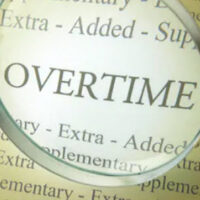FLSA Overtime Regulations: What is “Compensable Time”?

Under the Fair Labor Standards Act (FLSA), non-exempt employees must be paid for the full amount of hours that they worked—including for any overtime hours that they put in. Of course, employees cannot be properly compensated if their hours have not been correctly recorded.
In determining what counts as “working”, the Department of Labor (DOL) uses a concept called “compensable time.” Below, our Miami employment law lawyers explain the key things that you need to know about compensable time under the FLSA.
Compensable Time: Defined
For regulatory purposes, work is defined as either activity that benefits the employer or activity that the employer controls. In other words, under the FLSA, a non exempt employee is considered to be working and should be compensated if:
- They are required to be on duty; or
- They have work-related responsibilities.
Record Keeping: Employers Have a Duty to Accurately Count Hours Work
The Fair Labor Standards Act puts the duty on the employer to properly record the hours worked by all non-exempt employees. If they fail to do so, they may be held liable. In many cases, recording time worked is a relatively straightforward process. When an employee clocks in, they are working and they should be paid. When an employee clocks out, they are no longer being paid and cannot be required to work.
The second point is where some employers run into problems: A non exempt employee whose hours are not being recorded cannot do any work. As an example, imagine that a South Florida construction worker clocked out for a 30-minute lunch break. When they clock out, they are no longer being paid. If they are required to do work, then they must clock back in and they must be compensated for their time. In too many cases, employers nibble away at time and under-pay workers for hours that are compensable under federal law. By doing so, they may even deny that overtime pay that should have been earned.
Compensable Time and the FLSA: Three Frequently Asked Questions (FAQs)
- Is On Call Time Compensated? It depends. Some on call time must be compensated. If an employee is required to remain on the premises of their employer, then they must be compensated. However, if an employee is allowed to leave freely and merely leave a contact number, then they only need to be compensated if they are required to work.
- Are Breaks/Meals Compensated? Breaks/meals can only be considered non-compensable time if the employee is fully and completely relieved from their work obligations. If they continue working in any manner during their break, they must be paid.
- Is Travel Compensated? Day-to-day travel to the office is not compensated. However, travel during the workday, overnight travel, and any other type of travel that requires an employee to work additional time beyond an ordinary commute should be compensated.
Call Our Miami, FL Unpaid Overtime Attorneys for Immediate Help
At Pike & Lustig, LLP, our Florida employment law attorneys have the skills, training, and legal expertise to handle complex unpaid overtime cases. If you have any questions or concerns about compensable time, we are available to help. To set up a confidential consultation with an experienced unpaid overtime lawyer, please call us today. From our law offices in Miami and West Palm Beach, we handle FLSA claims throughout Southeast Florida.
Resource:
dol.gov/agencies/whd/flsa
https://www.turnpikelaw.com/how-does-overtime-work-for-tipped-employees-in-florida/



